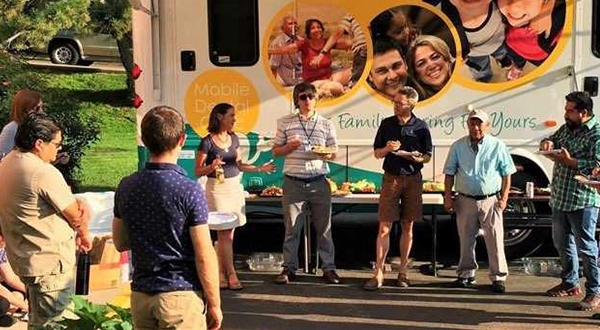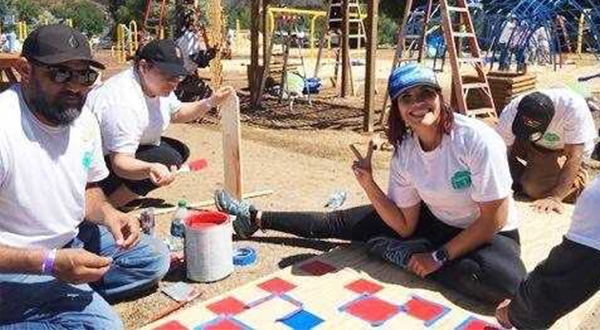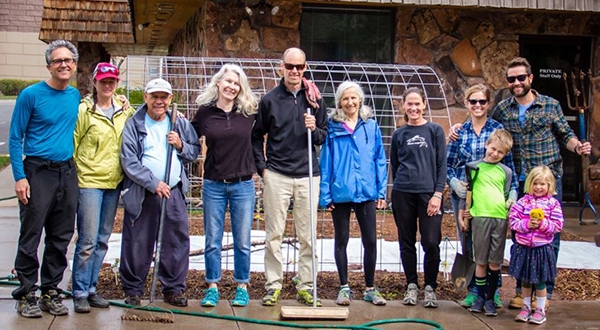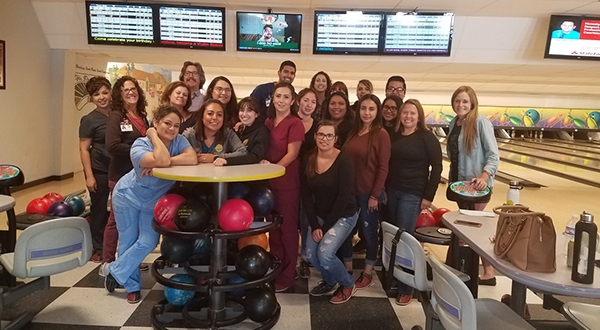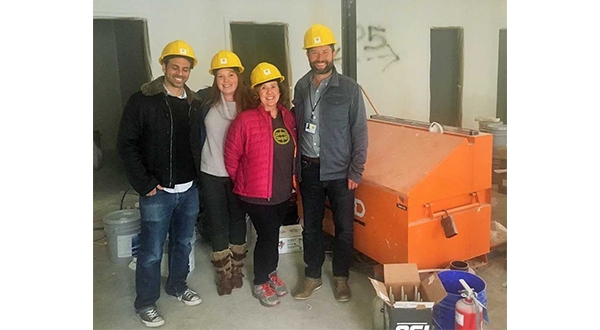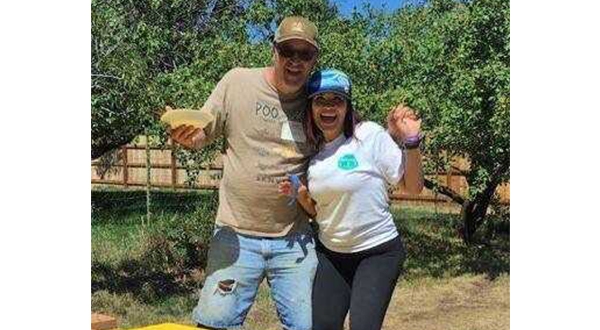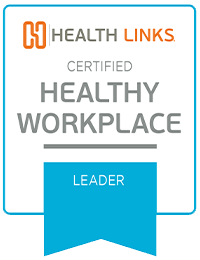
Health Links (HL): What does being a healthy workplace mean to your organization?
Mountain Family Health Centers (MFHC): Mountain Family Health Centers is a Community Health Center that is passionate about serving our community in regards to medical, dental, and behavioral health care, regardless of ability to pay. We deliver the highest quality health care that allows our patients to live healthy lives and to assist our community in being a healthier, more productive place. With our organization’s mission in mind, we try to mirror that and give our employees and their families the opportunity to achieve total well-being.
If our employees and their families are able to utilize our wellness tools, they are on their way to being their best selves. If and when this happens, we have accomplished our goal. Our organization is made up of so many different types of people from all walks of life. By offering a diverse wellness plan, we can reach everyone.
Holding the title of Certified Healthy Workplace™ Leader allows us to show and speak to the great work we are all doing.
HL: How does your organization create a culture of health, safety, and well-being for employees?
MFHC: We like the phrase "pot calling the kettle black." We want our employees want to practice what they preach. Why would our patients listen to what we suggest if we don't try to do those same things?
Mountain Family also has a supportive leadership team that recognizes the need for total well-being. Our leadership values this so much that we include the following in our Quadruple Aim of Service Excellence: "Create and maintain an Index of Well-being."
I believe our biggest driving factor is our wellness program. It starts with our Wellness Plan. Mountain Family offers up to 20 hours of paid time off each year for completing various activities such as wellness checks, eye exams, coaching children's soccer teams, gym memberships, volunteering in the community, smoking cessation, and so much more. We reward our employees for making efforts to live healthier lives, serve their community, and engage with their families. We not only reward employees with paid time off but, but we offer the opportunity to complete these activities during work.
Our organization has a wellness champions committee that puts together walking groups during breaks, healthy cooking tips lunch and learns, and sponsors our clinic gardens. We allow them to lead the charge and do what they feel passionate about. I truly believe that to achieve success, you have to allow others to drive that work.
HL: What changes have you seen among your employees, their families, or the surrounding community as a result of your program(s)?
MFHC: We launched our Wellness Program in 2015. Prior to this, employees did not receive discounted gym memberships, additional time off, rewards for having great workplace safety scores, or opportunities to include their families in the workplace. I would say we were a 1990's style company on the verge of making a splash in the new age workplace. Our organization saw where the future of Community Health Centers was going and chose to lead instead of follow.
Immediately, our leadership got on board and made a roar. They fully supported the plan and made their stance vocal through company newsletters, community partners, and in all-staff meetings. They made it apparent that they truly care about the health and well-being of our employees and their families.
This took our total well-being initiative from 10% to 95% participation in the first year. By year two, we had 98% and as of 2018, we had everyone in the organization participate at least once throughout the year! This was amazing. People were passionate about earning their extra time off to use it for what they loved and needed.
Our employees soon requested they get acknowledged for outcomes-based data rather than just participation. We had employees asking for tools to quit smoking and education on how to have more ergonomic workspaces. They truly wanted more out of their organization and that was refreshing. These are people who already do so much, but wanted to do better.
This rapidly growing success was soon noticed by our fellow community partners in the Valley Well Workplace Partnership. This group asked Mountain Family to join the cause of helping make Garfield, Pitkin, and Eagle counties the healthiest in the state. This was a huge honor. We were able to share our successes and challenges with the team and help start several of our local businesses on the path to a healthy workplace. We participated in a health and wellness symposium that gave resources to our small business that would allow them to have a wellness program of their own. We expressed that wellness plans aren't a one size fits all. This was relieving to so many of our small employers that just felt that a healthy workplace was out of reach for them. We never thought that our small program would reach so many.
HL: How has Health Links helped your organization?
MFHC: For starters, we honestly fell into a relationship with Health Links. One of our nurses in our Edwards location heard about a presentation Health Links was giving at CMC. We were not invited, but we crashed the party anyway. I took our whole wellness team with me (seven employees). What a surprise that was for presenters.
After the presentation, we were fired up. Health Links was going to be a tool that we could use to create a well-rounded program. We didn't realize that we not only wanted our employees to be healthy in body, mind, and soul, but safe in the workplace as well. Workplace safety wasn't even on our radar when we realized what a healthy workplace was.
Health Links set us up with an advisor, Amanda Wagner. Amanda was our fearless leader. She helped us complete an assessment that would start us off. The results were hard to accept at first. We had so much we wanted to achieve and so far to go. Through the use of our assessment, coaching sessions, and webinars, we were able to measure where we were and how we were going to achieve our goals.
Lastly, Health Links has kept the fire going for us. Like most employers, we are a little bit competitive. We want to win and we want to be recognized for our great work. Starting in our second year, Health Links made us aware that there were workplace well-being and safety awards that were up for grabs. We were all over that. We came very close several years in a row. We could taste the recognition. This made us want to keep evolving our programs and strive for bigger and better things.
I don't believe that our program would be the same without the help of Health Links.
HL: What tips or pieces of advice would you give to a workplace looking to create a healthier, safer, and happier environment?
MFHC: Total well-being does not have a key ingredient. Each organization has different needs, means, and buy-in. You have to know your audience and listen to what they need.
The greatest advice I was ever given was to name some champions and allow them to help drive the program. A healthy workplace isn't achieved through one person. We have wellness champions at each site that report to the group each month on the events they created, the culture of the clinic, and what they want to do next. I don't have the weight of that responsibility on my shoulders. I facilitate the committee, but I allow them to run it.
You truly have to want a healthier, safer, and happier environment. If the only driving factors are money, a sign on your front door, or bragging rights, that isn't enough. This has to be about the whole organization. Yes, you want your workforce to be more present and productive. Yes, you want your community to have a positive outlook on your company. Yes, you want employees to be happy. Are you willing to combine all of those things and think about how this will impact your employees, their families, and the community? I urge you to truly think about those questions.
Once you have decided to make the change, expect that it may take some time. Know that you will have make progress, but have setbacks. Don't get discouraged if you lose momentum. You can always try again.
